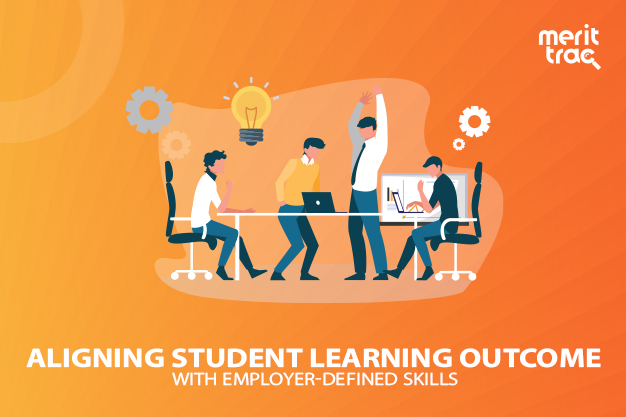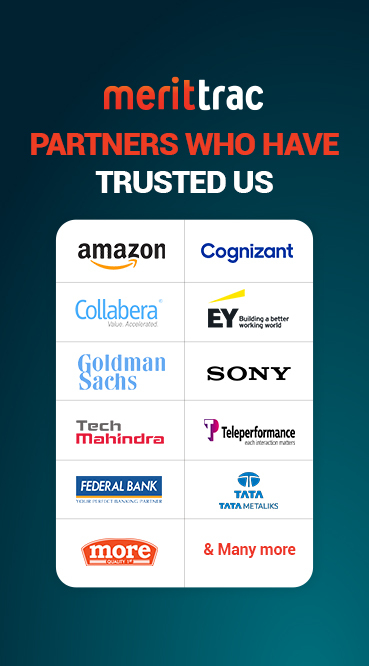
Aligning Student Learning Outcome with Employer-Defined Skills
Date: 12/03/2020 | Posted by: Ajmal V, Content Strategist | Category: Employability Skills , Education
To complete a course successfully, a studentmust clear the pre-set parameters including performance in the class and exams. Student Learning Outcomes (SLO) is defined as a set of parameters to ensure how much the student learn out of a particular course or programme. The evaluator or teacher scores the students based on the set parameters in the SLOs and decides on the progress made by the student during the course. These SLOs are necessary for the student, teacher as well as the institution/governing body to mark their success rate.
Questions like how many students are completing the course each year; What is the cumulative per cent of the batch; Is the success rate par with the level of university/nation; etc., are crucial for the institutions. Some institutions students entering into jobs after the course also an accolade for institutions. For students, it is the marks or grades that they score in the examinations, whereas teachers are more concerned about the “pass-percentage” of the students.
For achieving SLO, institutions emphasize internal and external assessments which include assignments, projects, term-end tests, lab tests, internship, dissertations, etc. At what extent a student learnt or complete the given tasks in a timeframe - the semester - is tested in the regular SLO assessments. In short, the knowledge level of the student becomes the key in these SLOs rather than their employability.
Scarcity of skilled talents
However, the data show that the current SLOs are failure to produce job-ready talents. Hiring personnel across the globe opine that the fresh graduates are under-skilled to undertake the job. This is known as 'skill gap' - the difference between the ability’s employers seek in successful candidates and the capabilities that a fresh graduate have gained through their college education. To improve such competencies, the organisations have to utilise resources for onboarding training and upskilling.
Let’s explore six most sought-after skill sets.
- Critical Thinking/Problem Solving
Problem solving and critical thinking are defined as the ability to use knowledge, facts, and data to effectively solve problems. According to various studies, about 60 per cent of hiring managers think fresh graduates lack this skill. Everyone faces problems, especially in an organization, issues pop up daily. Employers expect their employee/s face and handle the issues and find the solution time-to-time. This can be achieved through the process of critical and creative thinking, sharing of thoughts and opinions, using good judgement, and finally, taking a decision on that particular matter. Problem solving skill demonstrates the employer that the employee can act independently in any situation. - Communications
Communication is defined as the ability to convey a message clearly; either by written or oral forms. Non-verbal communication is also included in this skill. It involves listening to others and understanding their point of views. Persuading the clients/customers to get a favourable response is what employers expect from their employees. - Teamwork/Collaboration
No employee is supposed to work alone in the organization today. An organization would have multiple teams to perform various tasks. Every employee should get along with other employees in the team to achieve the target successfully. The success could be the team’s goal or the organisation’s target. Therefore, employers want their employees to have an attitude of collaboration and teamwork. - Digital Technology
Technological developments force organizations to reform their functions with digital routes to reduce the human workload and realise a quick result. Computer skills including word processing, spreadsheets, presentation, drafting and sending emails, and even using office equipment like printer and photocopier are some of the digital technology skills every employer look for from an employee. It may also include social media, understanding of various software the company is using, basic programming knowledge, photography or videography skills etc. There is no compulsion to have all these skills but the employee should have a positive attitude to learn and apply these skills in their job. - Leadership
Leadership skill is the most important one in today’s VUCA world. Good leaders are high in demand. Over 45 per cent of HR personals confess that they look for candidates with this quality. The employee needs to lead some projects in the organization. Sometimes, he/she has to take the initiative and do the task without being asked. Therefore, the employee may require to organize team meeting, prepare a plan and motivate others to fulfil the tasks. The leadership role may or may not be pre-planned, so everyone who wishes to enter the job market has to equip this skill. - Professionalism/Work Ethic
A person’s work ethics represent his/her character. Strong work ethics means the person’s attitude towards the work as well as behaviour to others and his/her integrity. Professionalism is one part of the work ethics, that includes timeliness, punctuality, accountability, well-structured and organised, being consistent, professional appearance and hygiene etc. These values add the worth of employees and organisation.
Integrating with SLOs
The institutions, which aim to produce skilled workforce, should ensure whether their students attained the above-mentioned skills upon graduation. That can be achieved with conscious attempts from the institutions’ side by integrating these with their Students Learning Outcomes (SLOs). A two-way integration between employers and institutions is required to prepare curriculum as well as SLOs. Thus, the institutions can reduce the skill gap by producing job-ready talents. A regular employability assessmentwould help students and institutions to guarantee employment upon completing the course.
AceTrac, a solution from MeritTrac, is one such platform to test the employability skill of the students. The platform offers an online employability test to tackle comprehensive skill assessment needs holistically. It helps students prepare for jobs while they study, be prepared much before the campus placement season and makes it easy for hiring organizations to connect with the job-ready candidates.












 Sales Hotline: USA: +1 646 916 0939 / Others: +91 80619 14700
Sales Hotline: USA: +1 646 916 0939 / Others: +91 80619 14700


